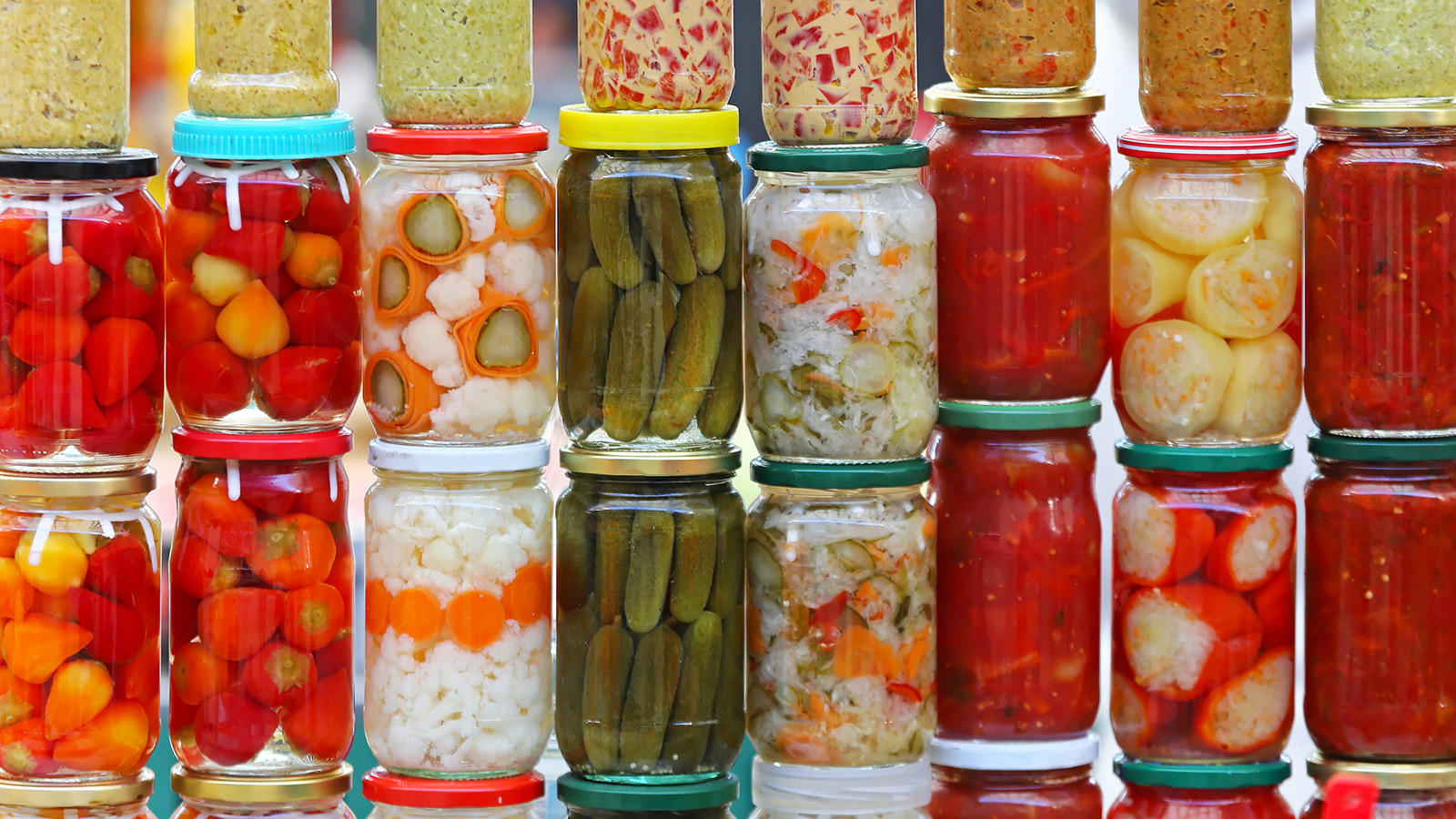Q. I would like to start jarring the food I grow in my garden, but I heard that BPA-free lids still have bad chemicals on them. Are their any jar lids that are chemical-free?
Mark G.
Pittsburgh, PA
A. Dearest Mark,
For me, the greatest veggie experience of them all is picking a ripe tomato (or pepper, or strawberry) straight from the garden and devouring it right then and there. But a close second has to be the satisfaction one gets from popping open a bright jar of home-grown veggies on a cold winter’s day. The color, the smell … it’s like summer in a jar, I tell you. And I don’t blame you one bit for wanting to keep a side dish of estrogenic chemicals from mucking up that delicious moment.
One of the fronts on our long-lasting war against weird, disruptive chemicals such as bisphenol-A (BPA) remains metal cans, including the metal lids commonly used to seal jars of home preserves. BPA and its brethren are used to make the epoxy linings that block bacterial growth and preserve the metal in our cans and lids — a good thing, except for the scientific concerns about the chemicals leaching into our food, getting into our bodies, and having disturbing effects on our health.
You probably remember the BPA brouhaha of a few years ago, Mark, when manufacturers starting yanking the chemical from their products in response to widespread consumer concern. Now, we can find plastic water bottles, canned beans, and even home canning lids that proudly proclaim their BPA-free status. Problem solved, right? Not so fast.
The thing is, most companies simply switched over to similar-yet-untested chemicals to fill the same role, such as common substitutes BPS and BPF. This sort of switcheroo is A-OK with the FDA: Chemicals are considered safe until somebody proves they aren’t. Some scary evidence against these reformulated plastics is mounting, though: This 2011 study found that most plastics leached estrogenic (read: hormone-addling) substances, including those marked as BPA-free, and this 2015 report linked BPS to abnormal brain development. Kind of leaves a bad taste in your mouth, doesn’t it?
Here’s where your quest to find chemical-free jar lids comes in, Mark. I’ve always been a better-safe-than-sorry kind of gal, and I’m right there with you on minimizing the risk of contaminating your lovingly grown carrots. Home canning is a little bit easier than, say, canned beans in the sense that most of your food is touching the glass of the jar, and leaving some headspace between the food and the lid when you fill ‘er up cuts way down on the potential to leach. But your goods might still touch the lids during heat processing, and tipping or flipping over the jars at any point can bring the two too close for comfort.
Luckily, there are ways to preserve your garden bounty without inviting chemicals to the party. One idea: these reusable lids, which are made from a solid, food-grade plastic copolymer paired with rubber gaskets. Personally, though, I’m most excited about clear, pure glass. The German company Weck sells glass jars with glass lids, held together with rubber gaskets and stainless steel metal clamps. In this case, you’ll pay for peace of mind – these vessels can cost almost three times as much as your standard, BPA-lined setup. But you’ll be happily chemical-free as you hunker down until the fresh-snacks-from-the-vine season returns.
Fruitfully,
Umbra



